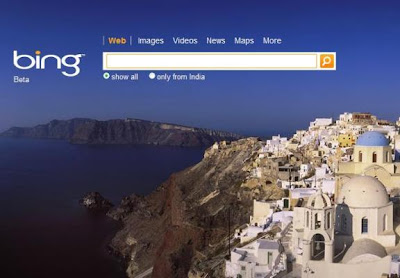Hotlinking - What is it and why avoid hotlinking?
Hotlinking (stealing dandwidth), inline linking, remote linkingand many other terms are used to describe a way taking images, or other files and embedding it directly into a website. In other words, unauthorized use of someone else's bandwidth. Hotlinked files are files Not stored on your own server i.e. you are showing files on your website but those files are hosted on some one else server. For example, a hotlinked image code would look something like this:
OK, so why is Hotlinking wrong and why should be avoided?
If the person who owns the media file you are embedding into your own website gives permission to hotlink, then nothing is wrong. Sadly, this is not usually the case. Frankly speaking its better to host the image files on the same server, as they are not much big in size, compared to Video Files. Now a day many of the webmaster use sites like youtube and google video etc. to host there videos. This is also one kind of hotlinking

If you don't have permission, remote linking to any media and / or program file is theft :).
Yes, theft.. even if it's a clipart archive offering free images, a music server giving away free tunes or a website with freeware... Unless the original website specifically states otherwise, hotlinking is stealing though chances of any legal action are silm.
"Wait a minute" I hear you say, "I didn't steal anything, the file is right where the owner left it!" OK, let me explain this a bit. Each time a file is called from our servers we have what is called a data transfer request, or another way of saying it.. we have bandwidth used of his server.
Bandwidth is a bit like gas for a car. Every time you drive (or a file is loaded), a bit of fuel (or bandwidth) is used up. Now imagine if each night one of your neighbors siphoned out a tiny bit for their own car... then other neighbors thought "I'll just take a couple drops as well"... by morning your fuel tank is empty. Your neighbors each thought taking just a tiny bit would be unnoticeable.. but added all up it left nothing for you.
Serving up images is not only usually our biggest consumer of bandwidth, when others remotely link to them (ie. embed them in their websites from our servers without our permission), we have to pay... bandwidth is not free! though it will not cost much. Most websites have a limited amount of data transfer and the website owners either have to cough up extra money each month to pay the fees, or face shutting down.
The difference between hotlinking & linking to a web site:
When people link directly to a media file (gif, jpg, png, mov etc.), the webmaster of the original site has to pay the fees. When someone links to a page on that same website, the webmaster still pays fees but the content is shown in the form the designer (and copyright holder) wished, and they may be able to cover costs by displaying advertising on the page.
Super simply put... Hot Linking to media files = bad... Linking to pages = good, linking to my site is cool :)
Other reasons you shouldn't hotlink files
Eventually every website owner that faces this dilemma has to make a decision. Close up shop... or fight back? Since their files would now be embedded into your website, they are free to do with those files as they wish... and most will.
Some things webmasters can do to hotlinkers:- Rename the file and give the hotlinker a broken file.
- Replace it with a very nasty file
- Replace it with a notice that hotlinking is not allowed and an advertisement for their own website.
- Contact the hotlinker's website host and submit a copyright / terms of service abuse report. In most cases this will result in the hotlinker losing their website.
OK, but...
So by now you (should) realize why hotlinking is wrong, but what if your web site host doesn't allow images stored? That's an easy one!
Either find a better host, that will allow image uploading.
Option number 2, keep your current host and use a free image host that allows hotlinking.
Can't save files?
If for some reason you can't save a file, or perhaps not on your own computer and find an image that you want, there's the Transload Service that will upload it for you, or you could always email yourself the file for later use.
Oh, and please, before you take any file whether it's an image, sound file or anything else.. check that it is allowed to be used elsewhere. Just because something is on a website does not mean that anyone is free to take it! There are copyright laws online as well.
If you like this article you are welcomed to add this article to you site or hotlink it in you site


 They have tried a lot and lot and are still trying to match the services offered by Google. The companies that got effected by Google are mostly Yahoo! and Microsoft. Yahoo has become a unstable company because of Google! Yahoo started well as a directory search engine, drives millions of users to its website, became the most popular company on the internet, and somehow has lost its focus now, because of Google. The magical power of pagerank has sinked the giant into a black hole. The other company that is trying to keep up with Google is Microsoft. Microsoft is now miles away from Google. They are not in a situation to do any miracles online. They have created some great softwares for PCs, but online applications from Microsoft has not tasted success since the emergence of Google. They have provided lot of services, but with less creativity and the result is that either they are short lived or are not purposeful.
They have tried a lot and lot and are still trying to match the services offered by Google. The companies that got effected by Google are mostly Yahoo! and Microsoft. Yahoo has become a unstable company because of Google! Yahoo started well as a directory search engine, drives millions of users to its website, became the most popular company on the internet, and somehow has lost its focus now, because of Google. The magical power of pagerank has sinked the giant into a black hole. The other company that is trying to keep up with Google is Microsoft. Microsoft is now miles away from Google. They are not in a situation to do any miracles online. They have created some great softwares for PCs, but online applications from Microsoft has not tasted success since the emergence of Google. They have provided lot of services, but with less creativity and the result is that either they are short lived or are not purposeful.








